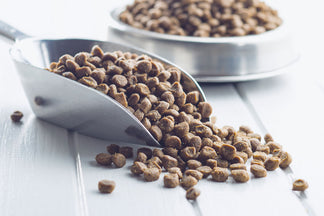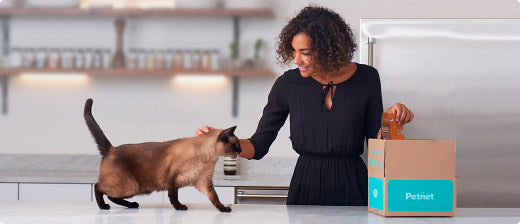Many cat owners use various supplements to help boost their cat’s immune system, believing that boosting the immune system can be quite effective in keeping their cat healthy. I often recommend products such as fish oil or other sources of fatty acids and other supplements to my own veterinary clients (for both cats and dogs) for similar reasons. So, it was with great interest that I read this article entitled “The potential for enhancement of immunity in cats by dietary supplementation” in the journal Veterinary Immunology and Immunopathology.
The Study and Its Results – Are Supplements Effective?
Essentially, this study followed 43 healthy cats over a period of five weeks. The cats were split up into groups of eight or nine per group, with each group fed a different diet. The control diet was a low protein diet. Another group was fed a commercial moist high protein diet. Other groups received the control diet supplemented with either yeast-derived nucleotides, salmon oil, or l-arginine. The low protein diets were formulated using a commercial moist diet base with added fat and starch and fed free choice, along with water, according to the information offered in the article.
The researchers followed several indicators of immune function over the five week period during which the cats received these diets. I won’t go into detail about the specific parameters evaluated. Suffice it to say that among the factors examined were immune assays that examined the efficiency of various parts of the overall immune system. Please consult the text of the study if you are interested in more specific details.
The study found that “supplementation with arginine caused a significant enhancement of lymphocyte proliferative responses to the T-cell mitogen PHA” and “supplementation with either nucleotides or salmon oil resulted in significant enhancement” of the same response as well. In addition, it was noted that “dietary supplementation with arginine, nucleotides or salmon oil each led to significant increases in blood leucocyte phagocytic activity.”
The conclusion of the study was this: “A number of dietary ingredients have the ability to modulate the immune system of healthy cats possibly resulting in a greater ability to fight infection and disease.”
Should You Add Supplements to Your Cat’s Diet?
This news is encouraging, to say the least. It certainly supports the use of these supplements, particularly in situations where a cat’s immune system may be challenged. Still, there are some limitations that are worth considering.
Good nutrition is, as we all know, an essential part of keeping our cats healthy. Supplements have their place but the best safeguard of your cat’s health is feeding a well-balanced, complete diet that is suitable to your cat’s life stage and tailored to fit your cat’s individual needs. This may or may not require supplementation, depending on the your cat’s overall health and the makeup of the food itself. Haphazardly adding supplements to your cat’s diet may do more harm than good. Dietary supplements are not an example of a situation where if a little is good, a lot must be better. Consultation with your veterinarian or a nutritionist is always a good idea if you are considering changing your cat’s diet.
Another point worth mentioning is that this study involved 43 healthy cats. For a veterinary study, 43 is a respectable number but, still, the groups were small (8 or 9 cats each). Small sample sizes in a veterinary study are not unusual. However, just because 8 or 9 cats reacted to a specific diet or supplement in a specific way does not guarantee that your cat will react in exactly the same way. Remember also that the cats in this study were healthy cats. If your cat is ill or stressed, there may be different responses that come into play.
I’m certainly not saying that you shouldn’t give your cat supplements. In fact, I think they have a very definite place in veterinary medicine. And this study does give us some proof that they can be effective. However, I do think that supplements should be chosen wisely. Know what you’re giving and why, and take care to add the appropriate amount of any given supplement to your cat’s diet.

 Food
Food
 Food
Food
 Food
Food
